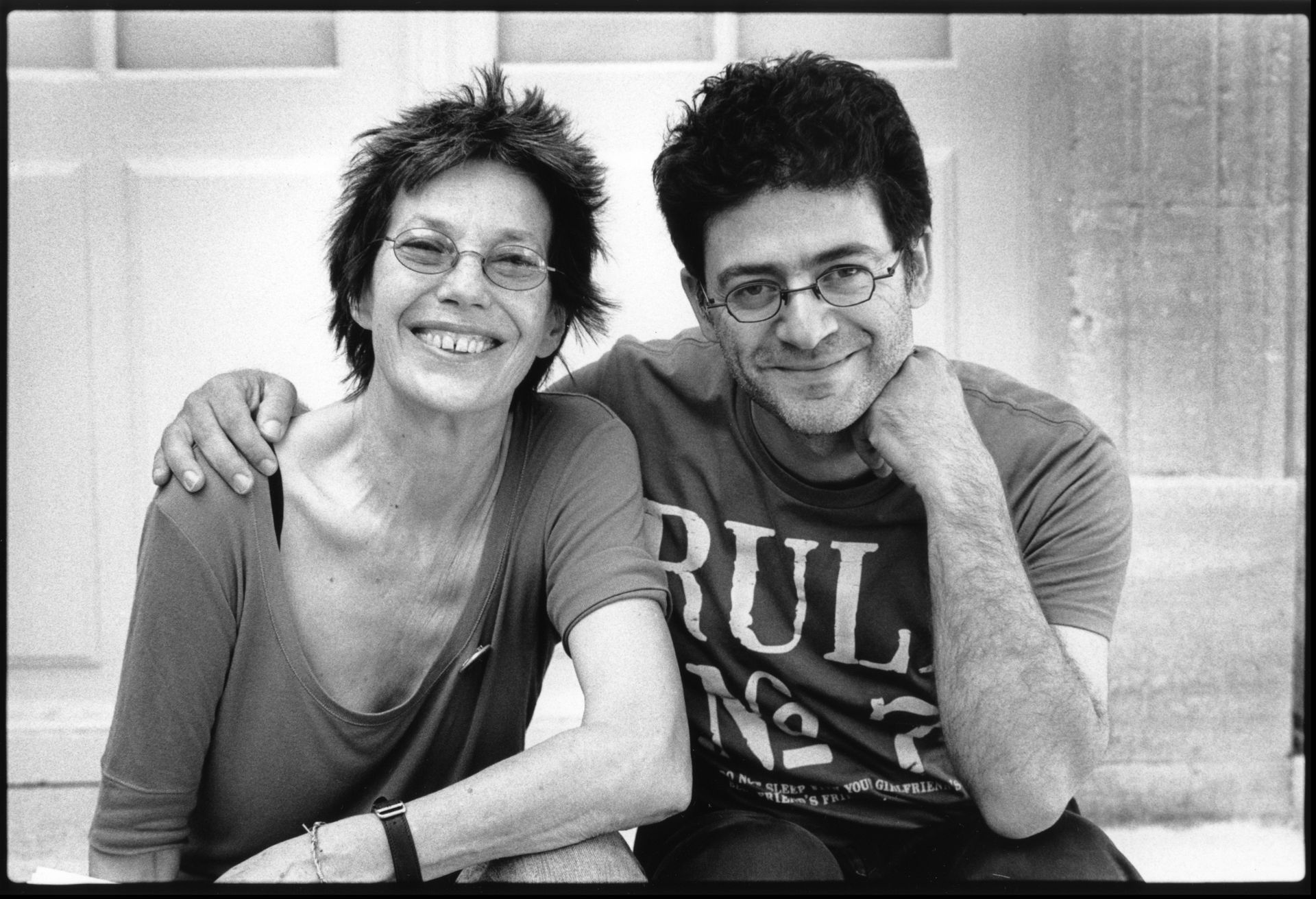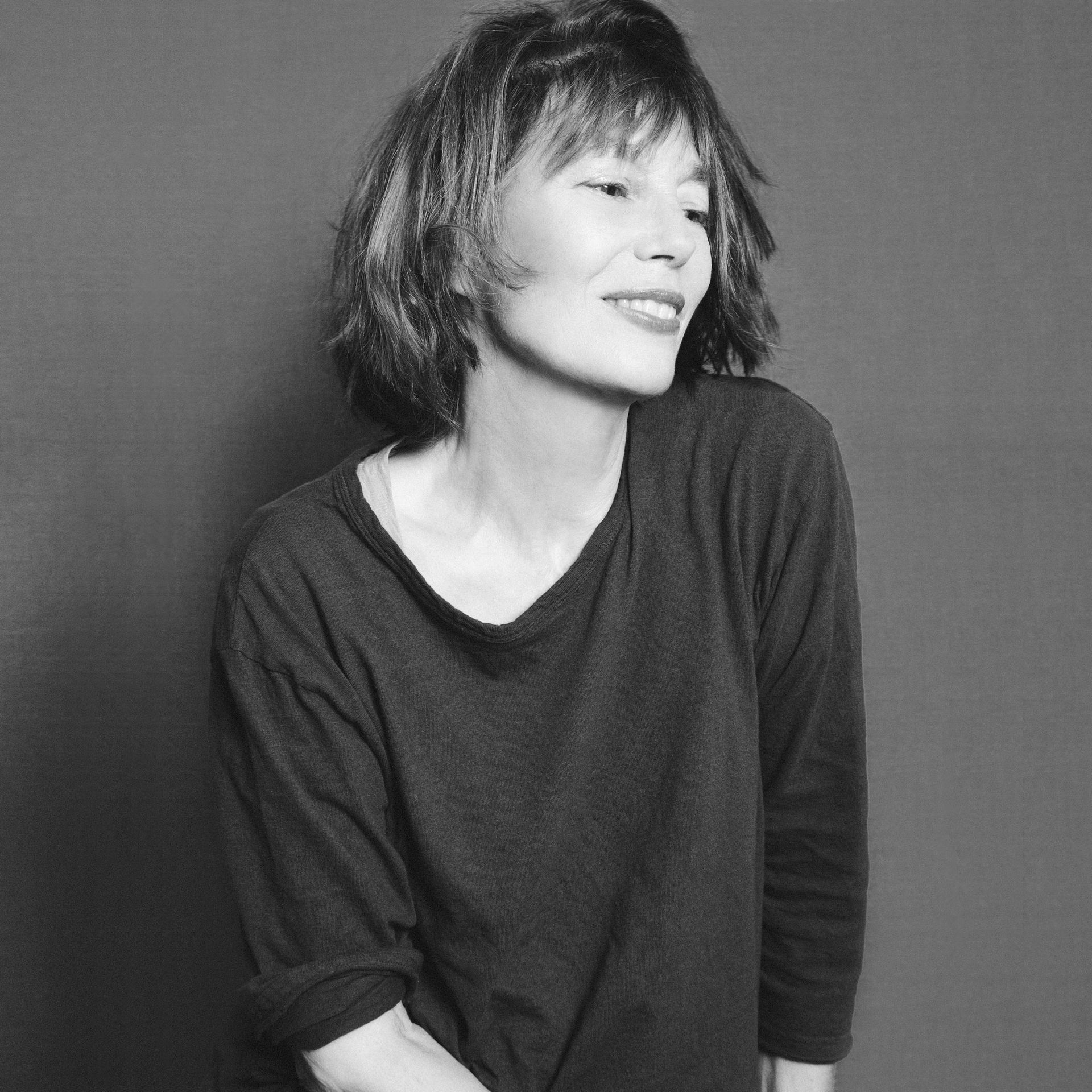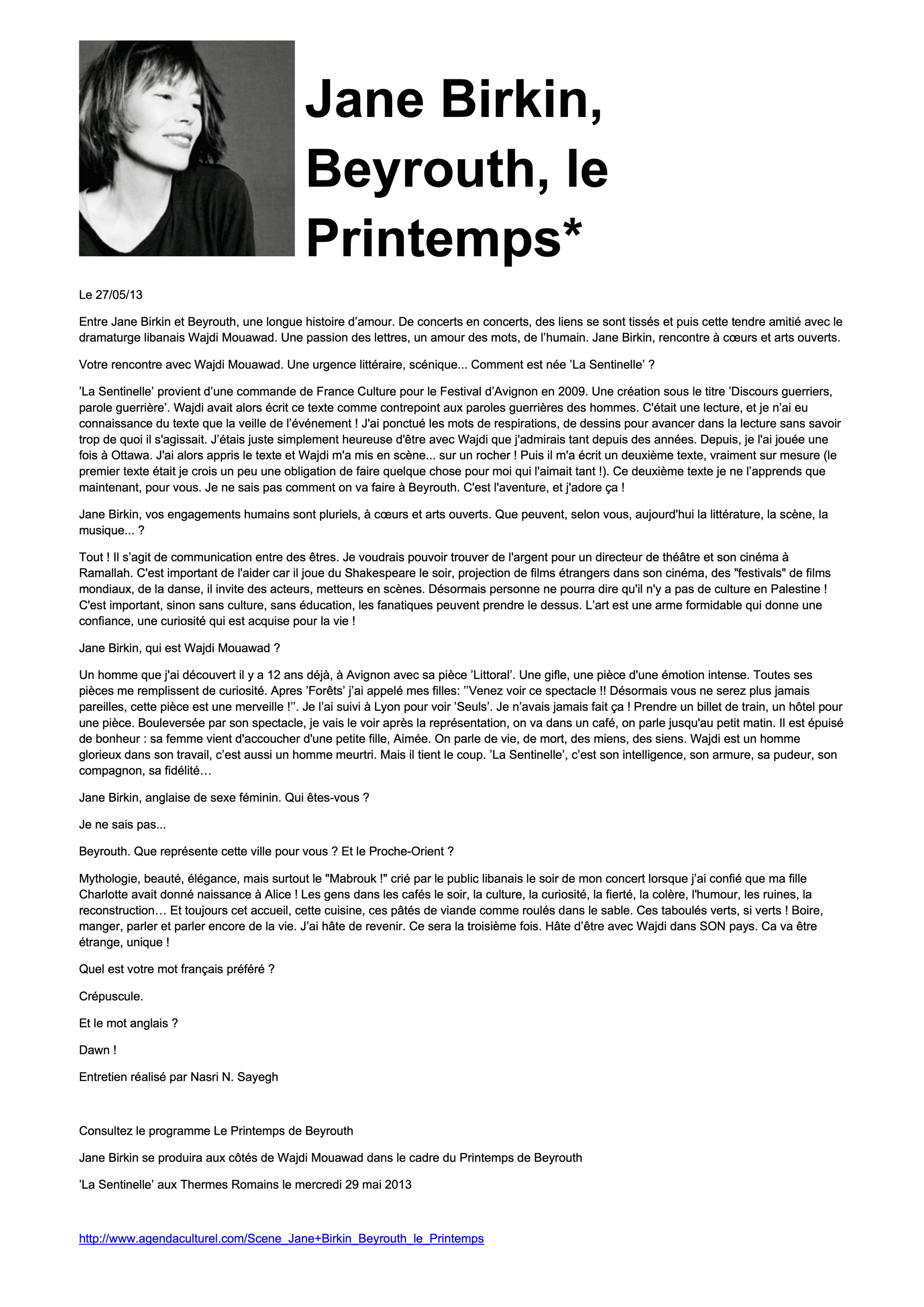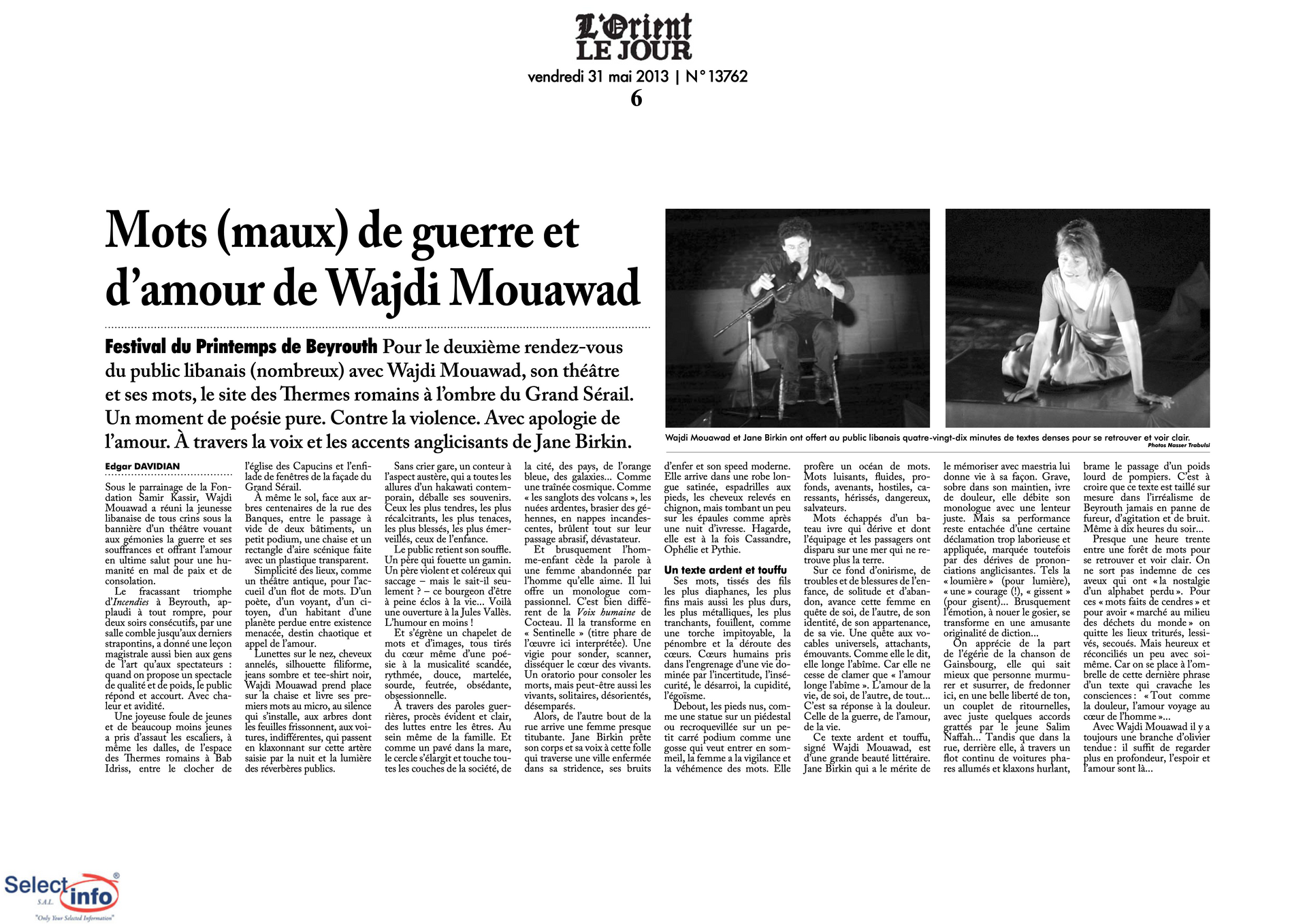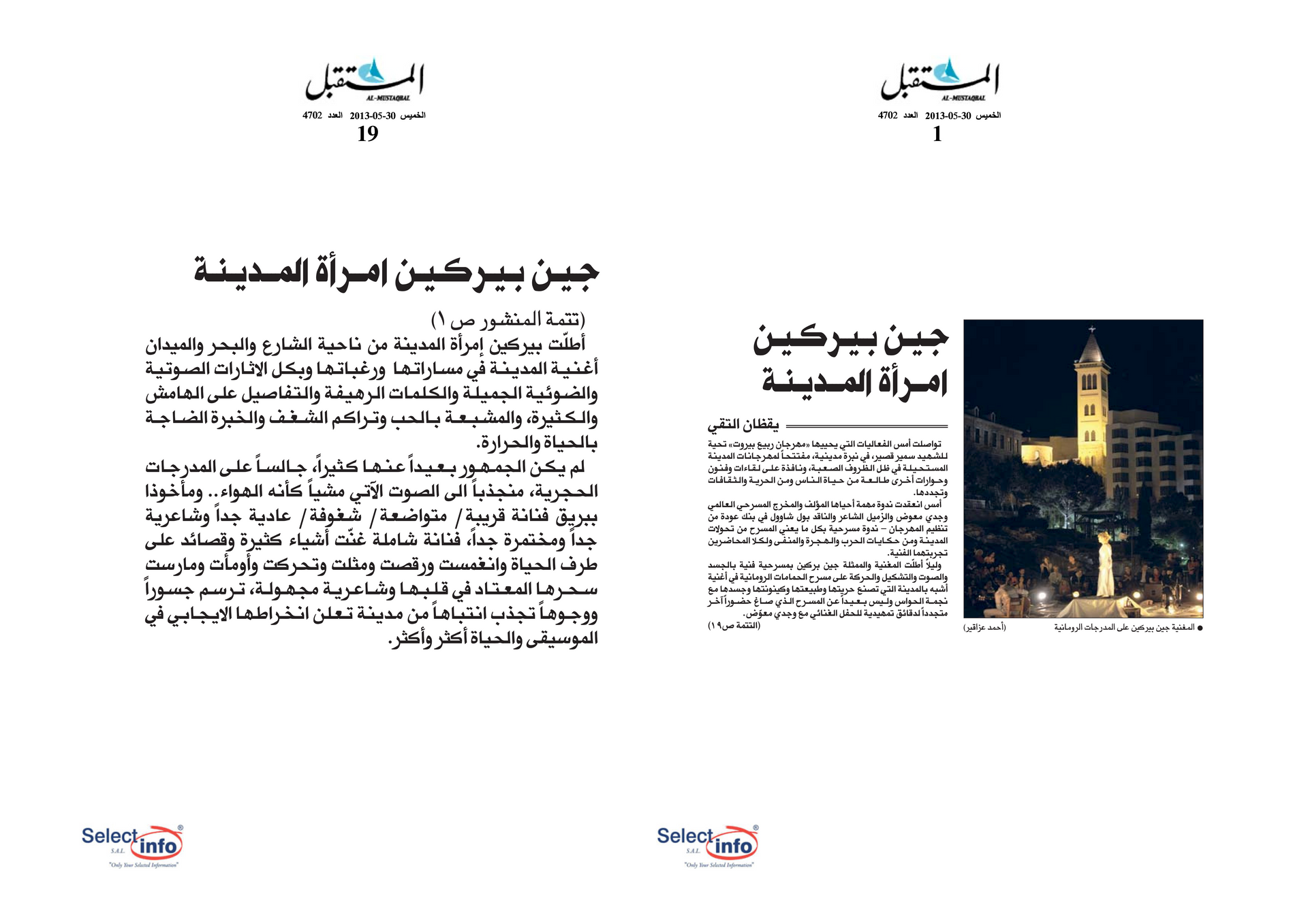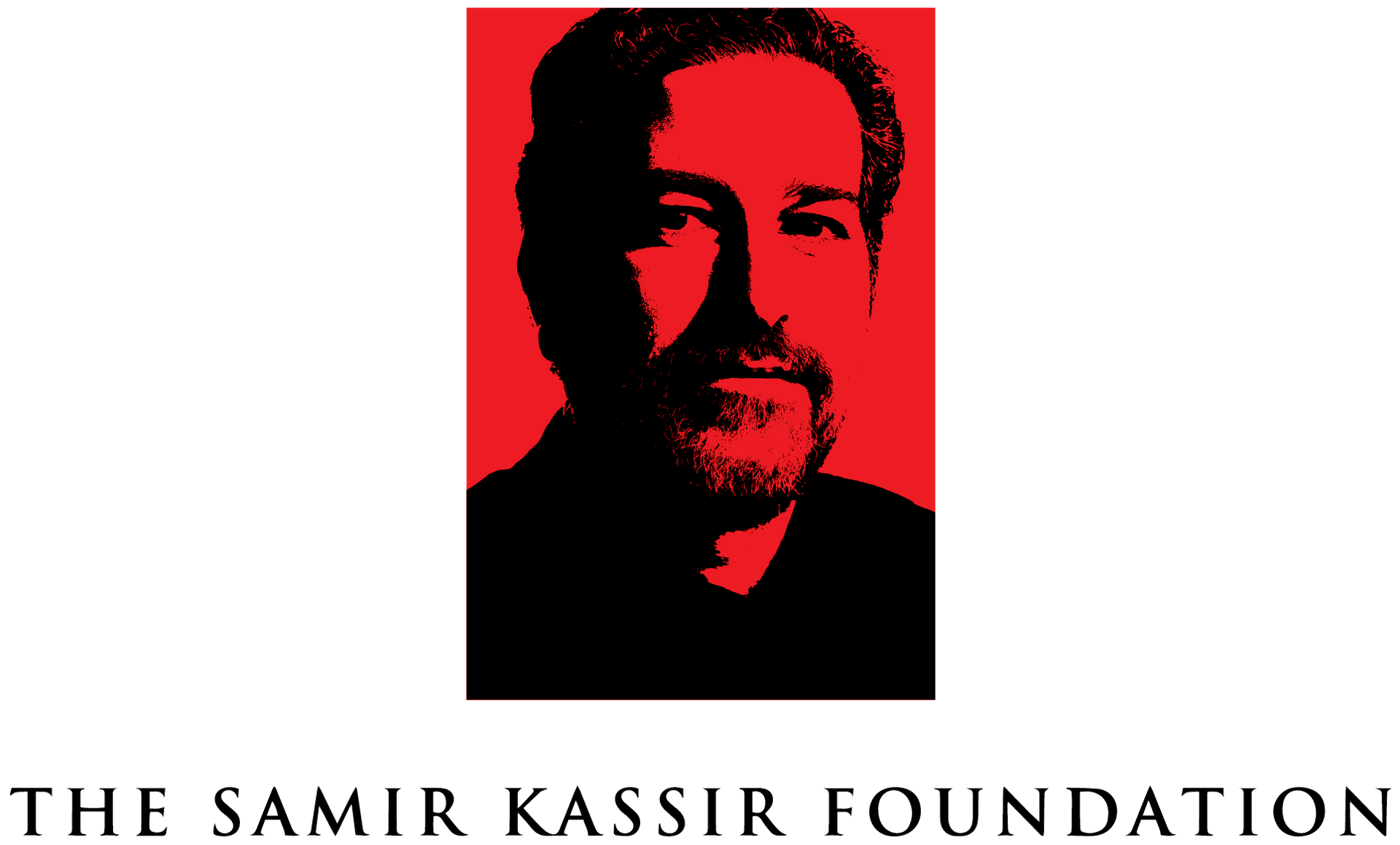THEATRE
LA SENTINELLE
Written and directed by Wajdi Mouawad
Performed by Jane Birkin and Wajdi Mouawad
France / Creation 2003
When Jane Birkin and Wajdi Mouawad met, their deep connection gave rise to The Sentinel, where Birkin's voice sings of dignity amid tragedy.
Wednesday 29 May 2013, 9:00 pm
Roman Baths, Beirut Downtown
When Jane Birkin and Wajdi Mouawad met, both touched by their artistic journeys and open-hearted struggles, the appreciation was immediate, urgent, complete and linked to the same humanity. The playwright wrote a text especially for the comedian and the committed woman who showed great compassion for the world and for people: The Sentinel.
Fragile voices remain to say things differently, to sing when things cannot be said. A living voice that longs to comfort the dead. Jane Birkin's silky voice is one of them. When there are no more ways to bring the unjustly dead back to life, there remains a possible dignity. That of the cantata, of the song, of the oratorio, of the simple phrase, made of words to say the evils of the world, the evils of words, the evils of words, intertwined, interlaced, folded, refolded, unfolded and entangled in a necessarily complicated way, to be heard and understood only by those who share the same sensibility, unheard by men and women dying in vain in the unbearable solitude of mass graves.
Wajdi Mouawad, summer 2009.
Jane Birkin was born in London in 1946 and began her acting career at the age of 17. Three years later, she was recognized in Antonioni's film Blow-up, introduced at the Cannes Film Festival and met Serge Gainsbourg in Slogan by Pierre Grimblat. This was the beginning of their mythical love story in Paris in 1969. They recorded Je t'aime moi non plus in an album that Jane Birkin and Serge Gainsbourg collaborated on and that sold millions of copies in a few months.
She separated from Serge Gainsbourg in 1981. He wrote her many songs, one of which is called Dessous chics, in his golden album. In 1985, she acted in a play for the first time in La fausse Suivante at the Theater des Amandiers in Nanterre, directed by Patrice Chéreau.She then dominated the stage as a singer at the Bataclan after the release of Lost Song in 1987. In 1990, Gainsbourg dedicated a new album to her called Amours des feintes, before his death the following year.
At the end of her tour in 1992 at the Francofolies de la Rochelle, she devoted herself to writing and to humanitarian work.She sang for Amnesty International, made a short film about the fight against AIDS and went to Sarajevo during the war for the Paris-Sarajevo Association.
Wajdi Mouawad spent his childhood in Lebanon, his adolescence in France, his young adult years in Quebec, and now lives in France. A 1991 graduate of Canada's National School of Dramatic Arts, he has adapted and directed contemporary and classic plays as well as his own. He was artistic director of the Théâtre de Quat'Sous in Montreal from 2000 to 2004 and of the Théâtre français du Centre National des Arts in Ottawa from 2007 to 2012. With the creative companies he founded, Abé Carré Cé Carré in Quebec and Au Carré de l'Hypoténuse in France, he was an associate artist at the Avignon Festival in 2009, where he created Le Sang des Promesses, composed of Littoral, Incendies, Forêts and Ciels. After his last creation Temps in 2011, he turned to the staging of the seven tragedies of Sophocles, comprising the opus Des Femmes in 2011, followed by Des Héros and Des Mourants.
The recipient of numerous awards, including the Governor General's Award for Littoral in 2000 and the Prix de la Francophonie from the Société des auteurs compositeurs dramatiques in 2004 for his body of work, he was named Chevalier de l'Ordre National des Arts et Lettres in 2002, Three years later, he was named a Knight of the Order of Canada, and he received an honorary doctorate from the Ecole Normale Supérieure des Lettres et Sciences humaines de Lyon and the Grand Prix du théâtre from the Académie française. His plays have been translated into more than fifteen languages and performed all over the world, including Great Britain, Germany, Italy, Spain, Japan, Mexico, Australia and the United States.
The Beirut Spring Festival is a free of charge annual arts and culture programming that celebrates freedom and renewal in Beirut, in memory of Samir Kassir.

All Rights Reserved, Beirut Spring Festival.

